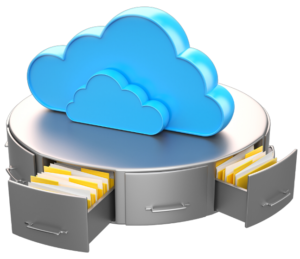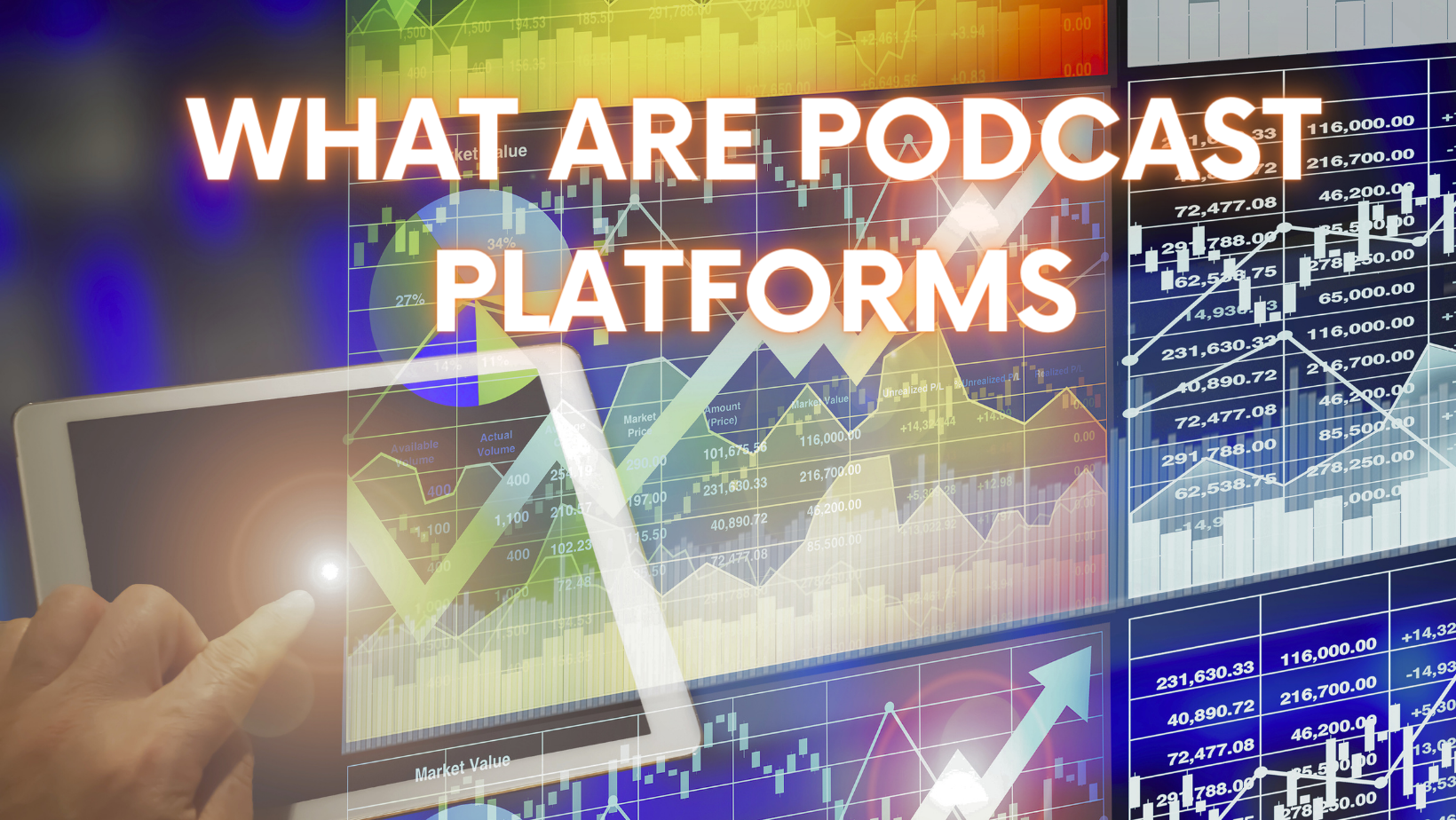Creating a podcast can be a great way to make money and reach a broad audience. However, it's important to plan the steps you'll need to take to get y
Creating a podcast can be a great way to make money and reach a broad audience. However, it’s important to plan the steps you’ll need to take to get your podcast out to the public and make it successful. One crucial part of this process is choosing a podcast hosting platform. With an estimated 32% of the US population tuning in to podcasts and the numbers growing, it’s crucial to find the right hosting provider to get your podcast off the ground.
Podcasts have become popular for people to express their ideas and make a name for themselves. If you’re not taking advantage of the opportunities podcasting can bring, you’re missing out. No matter what your interests may be, whether it be news, sports, or entertainment, podcasting is an effective way to share your thoughts with the world.
Podcast hosting sites are very similar to web hosting platforms, except they offer many more features other than merely storing audio files. To learn more about what podcast platforms can do for you, read our post to find out.
What Is A Podcast Hosting Platform?
A podcast hosting platform is a service that provides storage and distribution for podcast episodes. It allows podcasters to upload their audio files and create an RSS feed that can be submitted to podcast directories such as Apple Podcasts or Spotify.
Furthermore, podcast platforms connect podcast creators and the various podcast directories where they wish to have their podcasts featured. The hosting platform also provides analytics to track the performance of podcast episodes and allows for customization of the podcast website or player.
|
Why Do You Need Podcast Hosting?
It is suggested to use podcast hosting sites since they are designed to simplify the podcast experience.
Store Large Files
Podcast hosting services provide large amounts of storage space on their servers to store media files such as audio and video files. The hosting service takes care of the technical aspects of serving the media files, including bandwidth and server resources, which can be difficult and expensive to manage independently.
Streamline Podcast Distribution
These hosting services also generate an RSS feed for each podcast, which can be submitted to various podcast directories and platforms such as Apple Podcasts, Spotify, and Google Podcasts. By using a podcast hosting service, creators can avoid the hassle of individually uploading their podcasts to each platform. They can instead rely on the hosting service to distribute their podcasts to a broader audience.
Track Podcast’s Performance
Podcast hosting services provide analytics and metrics that help us monitor the performance of our podcast. We can track the number of downloads, subscribers, plays, the geographic location of our audience, and the devices they use to access our podcast. This data can help us understand our audience’s preferences and tailor our content accordingly. We can also track engagement metrics, such as retention and completion rates, and use this information to optimize our podcast’s format and delivery.
Grow Your Podcast
Nowadays, podcast hosting sites provide more than just storage and distribution services. Many of them offer features to aid in the growth of your podcast. Aside from the before-mentioned, they allow for customization of your podcast’s branding and the ability to monetize your podcast through sponsorships or ads.
Things To Consider When You’re Looking For A Podcast Platform
Choosing the right podcast hosting platform can make the production and launch process far more efficient and less stressful. Here are the most important factors to consider.
Free vs. paid hosting platforms
If you are looking to publish more than a few podcasts and potentially make money through your show, it would be beneficial to invest in paid podcast hosting. Paid hosting offers a range of benefits, such as getting data and insights about your audience, unlimited audio storage, the ability to monetize through advertising, and distribution to popular listening platforms.
Storage and bandwidth
 The amount of storage you will need for your show depends on how long it is and how frequently you intend to publish. Storage limits are typically determined by file size (in megabytes) or time, while bandwidth limits are usually set in megabytes.
The amount of storage you will need for your show depends on how long it is and how frequently you intend to publish. Storage limits are typically determined by file size (in megabytes) or time, while bandwidth limits are usually set in megabytes.
The capacity of storage and bandwidth a podcast host provides will affect several aspects of your podcast. And this includes how often you can release episodes, how much access your listeners have to past content and how many people can access your show simultaneously.
Be aware that having limited bandwidth may cause a negative experience for your audience. Most podcast hosting services have free and paid plans with varying bandwidth and storage limitations. You may need to pay for additional storage and bandwidth if you plan to publish regularly.
Analytics
 When choosing a podcast hosting platform, it is important to consider the analytics and data that come with the service. Many hosting platforms offer basic analytics as a free service, but more advanced analytics might require a paid tier. It is essential to look into what type of data the platform provides, focusing on IAB-verified data.
When choosing a podcast hosting platform, it is important to consider the analytics and data that come with the service. Many hosting platforms offer basic analytics as a free service, but more advanced analytics might require a paid tier. It is essential to look into what type of data the platform provides, focusing on IAB-verified data.
The IAB unveiled new regulations for podcast analytics, aiming to improve the accuracy of metrics associated with downloads and listens. This move helps podcasters who work with sponsors and advertisers to be more transparent when providing data.
Sponsors and advertisers will use your analytics to gain insight into your audience and market. This data will allow you to determine if your content resonates with certain device users, listeners in specific locations, and more, which can help you tailor your content and potential products and services.
Monetization
 Monetizing a podcast is an increasingly popular feature provided by podcast hosting platforms, generally through an ad network. Depending on the platform, a certain number of downloads may be required to enable this service, although some platforms offer basic ads for podcasts with lower download numbers.
Monetizing a podcast is an increasingly popular feature provided by podcast hosting platforms, generally through an ad network. Depending on the platform, a certain number of downloads may be required to enable this service, although some platforms offer basic ads for podcasts with lower download numbers.
Ad roll insertion is a post-production feature that lets you add unique ads to your episode. Transistor offers Dynamic Ad Insertion (DAI), which can automatically add promotional campaigns or announcement clips at the episode’s beginning, middle, and end. Also, Anchor allows users to promote their platform and receive a portion of the revenue generated.
Consider its premium subscription options and educational resources when looking for a podcast hosting platform. Look for companies that offer advanced features allowing you to manage premium subscriptions for your podcast.
Compatibility

Find a podcast hosting platform that can be seamlessly integrated into your website. This will help to avoid any potential obstacles when launching your podcast. Some podcast hosting services even allow you to create a custom website.
Additional Features
When first beginning, it can be tricky to anticipate all the additional benefits that you want your hosting platform to provide. A few features you need:
- Podcast website
- Host multiple shows
- Episode optimization
- Content creation tools
- Mobile apps
- Video recording and live streaming
FAQs |
Who should be using Podcast hosting Platforms?If you have a story to share with your audience, podcast hosting platforms offer the perfect way to reach them. Whether it’s a company narrative, an educational topic, or any type of entertainment, podcasts effectively increase your listener base. By hosting your podcast on these platforms, you can easily expand your audience without any hassle. |
Does it cost money to host a podcast?For basic needs, there are a number of free podcast hosting sites available. However, for more advanced needs, podcasters may find that they need to upgrade to a paid plan, which can range from $5 to $50 or more per month, depending on the features and storage required. |
Can you have a podcast on multiple hosting sites?Uploading your podcast to multiple hosts is optional and can be time-consuming. It can also reduce the number of listeners to your main feed and affect your analytics. We recommend sharing your show with one hosting site and its RSS feed. |
How much do podcast hosts make?The earning potential of a podcast host can vary significantly, and many podcasters do not make any money from their show. However, those with a loyal following can make a good income through sponsorships, affiliate sales, or by offering paid premium content. Sometimes, a successful podcast can bring in as much as $100,000 per month. |

What Podcast Platforms Should I Use?
When selecting a podcast hosting platform for your program, it is crucial to consider your budget, desired features, and objectives. To help you make an informed decision, we have reviewed the 10 best podcast hosting platforms. Be sure to check it before making your decision.
When starting out, don’t worry about making the wrong decision. Take a deep breath and choose the option to help you create a great podcast.

 Here are the podcast hosting platforms:
Here are the podcast hosting platforms:
COMMENTS